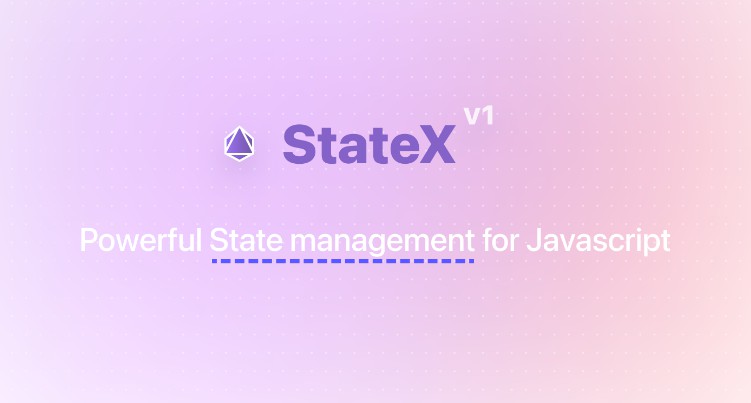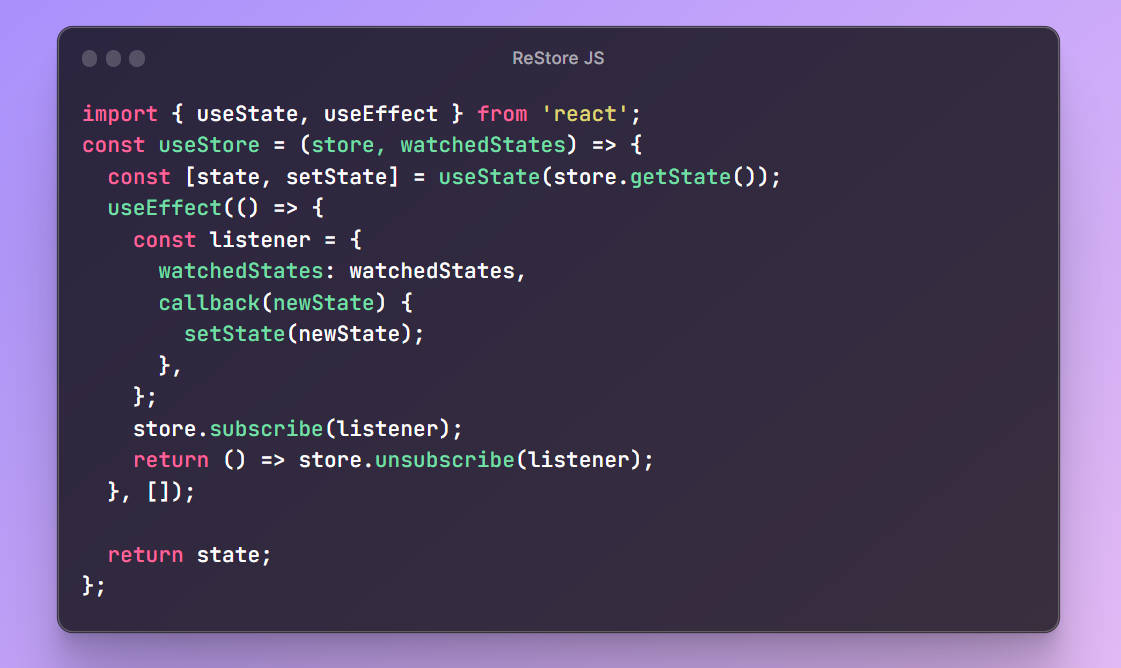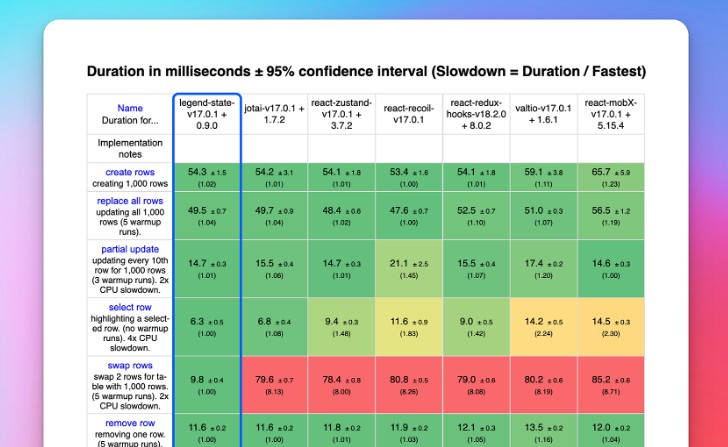StateX is a blazing fast and lightweight library for managing state in a Javascript app.
Features
- ? Portable – This library works accorss web and Node environments. You can use this library together with React or any other Javascript UI libraries.
- ? Fast − Our APIs just run lightning fast, no more slowdowns.
- ? Efficient – To reduce the consumption of energy, we have optimised it.
- ? Tiny (>2kb) – Too much lightweight, no more large bundle sizes
- ? Extensible – Extend the
Stateclass to create your own custom state object. - ? Asynchronous – If you are fed-up with how messy it is to save state inside a asynchronous operation, say goodbye to it.
Installation
This will be available when the package is published.
Documentation
Simple example
import { createState, registerEffect } from "statex";
/**
* Creates a new state object and returns an array of three elements with
* the first one as the getter and second one as the setter and the third
* one is the instane of the state object, this might be needed in
* scenarios when you need to use `registerEffect()` hook.
*
* The getter is a function, so you would you have to call it to get the
* state.
*
* The setter is also a function which you need to provide a new value to
* be passed in to the function. If the new value passed in is the same as
* the old one is used and the new unchanged value is ignored.
* This function is type-safe and if the new value's type is not the same
* as the new one, it will throw an error.
*
* The instance is a object that has the value of the state object created
* by createEffect() hook.
*/
const [username, setUsername, usernameInstance] = createState("anonymous");
/**
* Registers an hook to trigger whenever a change is made. If you need to
* detect changes from the creation of the state, you would need to register
* it right after creating the state. This means that the changes would only
* be detected after this hook is registered and not from the beginning.
* So it would improve perfomance as it would help the developer optimise
* triggering changes according to their apps.
*
* The first parameter is the callback when a new value is triggered. This
* function also passes in the new value.
*
* The second parameter is instance of the state object. You can get the
* instance from the createState() hook.
*/
registerEffect((newValue) => {
console.log(newValue);
}, usernameInstance);
// retrieving the value from the state.
console.log(username());
// setting the state, the callback inside the registerEffect() hook
// is triggered
setUsername("hello-world");
License
StateX is licensed under MIT and the copyright is owned by Haneen Mahdin.






